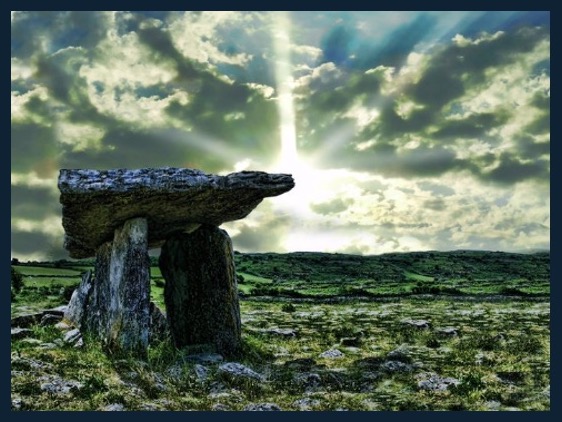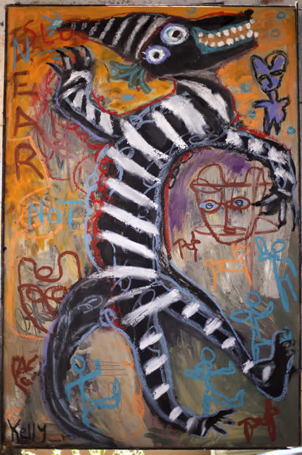Because I have an abiding love for folklore and all things odd, because I create art out of the liminal aspects of the world in which we live, I can’t very well be in the business of passing judgment on stories of the strange. Folklore is a living, breathing thing, a constant new creation from the imaginations and the deep psyche. So if someone tells me a story of a personal encounter with fairies, or about the ghost they saw, or the strange lights in the sky, I treasure these stories as a peek into the spontaneous eruption of spirit and imagination in the world. As long as human beings roam the earth, new beliefs and tales of the marvelous will erupt from the aether. This is the wellspring of creativity, the fundamental food of imagination.
By necessity, this food is always going to come at us from the fringes of society. It will never be found in the dead heart of academia because by its very nature it is the antithesis of academia. Academia is about cataloguing and studying that which is; folklore and the folk imagination is about creating new from old and old from new, and it is a rich source of spiritual replenishment. Academia has many important functions and I demand that it stay rigorous because we need the rigorous walking hand in hand with the fanciful. Both functions make society cohere.
I don’t buy into everything with one hundred percent credulity. Healthy skepticism is a necessary function of living in both complex societies and less complex. I grow impatient, however, with those who have taken up skepticism as a replacement for religious belief. Their skepticism is as sweeping and dogmatic as ever any organized religion. Theirs is an unhealthy skepticism. The marginal, the liminal, the odd, and the fanciful enrich the world. The more skeptics try to suppress it, the more creative ways the underworld finds to rise to the surface. One of the best analyses of the liminal I have ever seen is The Trickster and the Paranormal by George Hansen. Mr. Hansen uses exhaustive detail and thorough analysis to show why it will never be possible the suppress this underworld.
Yes, we all know about the excesses that beliefs of any kind are prone to, the persecutions that arise from the bonfires of unquestioning faith. That is not what I’m supporting here, what I’m cherishing, because that is not about the spirit. That is dogma—and I do judge dogma. If academia is the antithesis of the creative upwellings of the psyche, dogma is the antithesis of the spiritual. The silly stuff, the stuff that stretches credulity is as necessary to the health of any society as skepticism; it is the breath inside the lungs of culture. The danger comes from the other side of society’s fringe, the extremes of belief, the codifying of the spirit, the hardening of the arteries of fancy.
Judge not lest ye be judged. Judgment, sorting out the good from the chaff is healthy; judgment, the trumpeting of one belief system over another, is a form of societal death. I open my arms to extreme possibility, not to the extremes of judgment.




